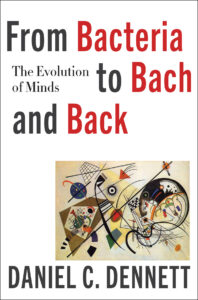After a year and a half of actual total war German morale is still good. Let us admit the fact. There is no popular enthusiasm for the war. There never was. And after eight years of deprivation caused by Nazi preparation for war, the people are weary and fatigued. They crave peace. They are disappointed, depressed, disillusioned that peace did not come this fall, as promised. Yet as the war goes into its second long, dark winter, public morale is fairly high. How explain the contradiction? Keep in mind three things:
First, that the millennium-old longing of Germans for political unification has been fulfilled. Hitler achieved it, where all others in the past – the Habsburgs, the Hohenzollerns, Bismarck – failed. Few people outside this country realize how this unification has knitted the German nation together, given the people self-confidence and a sense of historical mission, and made them forget their personal dislike of the Nazi regime, its leaders, and the barbaric things it has done. Also – coupled with the rebirth of the army and air force and the totalitarian reorganization of industry, trade, and agriculture on a scale never before realized in this world—it makes the German feel strong. For most Germans this is an end in itself, for to be strong in their scheme of life is to be all. It is the emergence of the primitive, tribal instinct of the early German pagans of the vast forests of the North to whom brute strength was not only the means but the end of life. It is this primitive racial instinct of “blood and soil” which the Nazis have reawakened in the German soul more successfully than any of their modern predecessors and which has shown that the influence of Christianity and western civilization on German life and culture was only a thin veneer.
Second, morale is good because the German people feel they have this summer revenged the terrible defeat of 1918 and have achieved a string of military victories which has at last ensured their place in the sun – domination today of Europe, tomorrow perhaps of the world. And German character is such that the German must either dominate or be dominated. He understands no other relation between human beings on this earth. The golden mean of the Greeks which the Western world has achieved to some extent is a concept beyond his comprehension. Moreover, the great mass of workers, peasants, and petty tradesmen – as well as the big industrialists – are conscious that if Hitler succeeds with his New Order, as they are confident now he will, it will mean more of the milk and honey of this world for them. That it will of necessity be obtained at the expense of other peoples – Czechs, Poles, Scandinavians, French – does not bother the German in the least. On this he has no moral scruples whatsoever.
Third, one of the prime springs which push the German people along in full support of a war for which they have no enthusiasm, and which they would end tomorrow if they could, is their growing fear of the consequences of defeat. Slowly but surely they are beginning to realize the frightful magnitude of the seeds of wrath which their high-booted troops and Gestapo men have sown in Europe since the conquest of Austria. They are beginning to see that a victory with the Nazi regime, however much many of them may dislike it, is better than another German defeat, which this time, if it ever comes about, will make Versailles seem like a peace of sweet reason and destroy not only the nation but the Germans as a people. More than one German of late has confided to me his fears. If Germany loses, they see the embittered peoples of Europe whom they have brutally enslaved, whose cities they have ruthlessly destroyed, whose women and children, many of them, in such places as Warsaw, Rotterdam, and London, they have coldbloodedly slain, storming in angry, revengeful hordes over their beautiful, orderly land, dynamiting it to destruction, and leaving those whom they do not butcher to starve and die in an utter wasteland.
No, these people, ground down and cheated though they may be by the most unscrupulous gang of rulers modern Europe has yet seen, will go a long, long way in this war. Only a dawning realization some day that they can’t win coupled with Allied assurances that to give up the struggle will not mean their destruction will make them falter before one side or the other is destroyed.
We who have been so close to this German scene, who have seen with our own eyes the tramping Nazi boots over Europe and heard with our own ears Hitler’s hysterical tirades of hate, have found it difficult to keep a sense of historical perspective. I suppose the reasons why Germany has embarked on a career of unbridled conquest do go deeper than the mere fact, all-important though it is, that a small band of unprincipled, tough gangsters have seized control of this land, corrupted its whole people, and driven it on its present course. The roots go deeper, I admit, though whether the plant would have flowered as it has without Hitler, I seriously doubt.
One root is the strange, contradictory character of the German people. It is not correct to say, as many of our liberals at home have said, that Nazism is a form of rule and life unnatural to the German people and forced upon them against their wish by a few fanatic derelicts of the last war. It is true that the Nazi Party never polled a majority vote in Germany in a free election, though it came very close. But for the last three or four years the Nazi regime has expressed something very deep in the German nature and in that respect it has been representative of the people it rules. The Germans as a people lack the balance achieved, say, by the Greeks, the Romans, the French, the British, and the Americans. They are continually torn by inner contradictions which make them uncertain, unsatisfied, frustrated, and which force them from one extreme to the other. The Weimar Republic was so extreme in its liberal democracy that the Germans couldn’t work it. And now they have turned to the extremes of tyranny because democracy and liberalism forced them to live as individuals, to think and make decisions as free men, and in the chaos of the twentieth century this was too much of a strain for them. Almost joyfully, almost masochistically, they have turned to an authoritarianism which releases them from the strain of individual decision and choice and thought and allows them what to a German is a luxury – letting someone else make the decisions and take the risks, in return for which they gladly give their own obedience. The average German craves security. He likes to live in a groove. And he will give up his independence and freedom – at least at this stage of his development – if his rulers provide this.
The German has two characters. As an individual he will give his rationed bread to feed the squirrels in the Tiergarten on a Sunday morning. He can be a kind and considerate person. But as a unit in the Germanic mass he can persecute Jews, torture and murder his fellow men in a concentration camp, massacre women and children by bombing and bombardment, overrun without the slightest justification the lands of other peoples, cut them down if they protest, and enslave them.
It must also be noted down that Hitler’s frenzy for bloody conquest is by no means exclusive to him in Germany. The urge to expansion, the hunger for land and space, for what the Germans call Lebensraum, has lain long in the soul of the people. Some of Germany’s best minds have expressed it in their writings. Fichte, Hegel, Nietzsche, and Treitschke fired the German people with it in the last century. But our century has not lacked for successors, though they are little known outside this country. Karl Haushofer has poured books from the presses dinning into the ears of the Germans the maxim that if their nation is to be great and lasting, it must have more Lebensraum. Books of his such as Macht und Erde (Power and Earth) and Weltpolitik von Heute (World Politics of Today) have profoundly influenced not only the Nazi leaders but a great mass of people. So has Hans Grimm’s Volk ohne Raum (People without Space), a novel which has sold nearly a half-million copies in this country despite its length of some thousand pages. And so has Moeller van den Bruck’s The Third Reich, written eleven years before Hitler founded the Third Reich.
All these writings emphasized that Germany was entitled by the laws of history and nature to a space more adequate to its mission in life. That this space would have to be taken from others, mostly from Slavs who had settled on it when the Germans themselves were little more than rough tribesmen, made no difference. It is this basic feeling in almost all Germans that the “lesser breed” of Europeans are not entitled to absolute rights of their own, to a piece of land to till and live on, to the very towns and cities they have built up with their own sweat and toil, if a German covets them, which is in part responsible for the present state of Europe.
It is the evil genius of Adolf Hitler that has aroused this basic feeling and given it tangible expression. It is due to this remarkable and terrifying man alone that the German dream now stands such a fair chance of coming true. First Germans and then the world grossly underestimated him. It was an appalling error, as first the Germans and now the world are finding out. Today, so far as the vast majority of his fellow countrymen are concerned, he has reached a pinnacle never before achieved by a German ruler. He has become – even before his death – a myth, a legend, almost a god, with that quality of divinity which the Japanese people ascribe to their Emperor. To many Germans he is a figure remote, unreal, hardly human. For them he has become infallible. They say, as many peoples down through history have said of their respective gods: “He is always right.”
Notwithstanding many reports to the contrary which float abroad, he is the sole and absolute boss of Germany today, brooking no interference from anyone and rarely asking and almost never heeding suggestions from his intimidated lieutenants. The men around him are all loyal, all afraid, and none of them are his friends. He has no friends, and since the murder of Röhm in the 1934 purge there has not been a single one of his followers who addressed him with the familiar Du. Göring, Goebbels, Hess, and all the others address him in only one way: “Mein Führer.” He leads a lonely, closely guarded life, and since the beginning of the war his very whereabouts are carefully kept from the public and the outside world by Himmler.
Nowadays he rarely dines with his chief aides, preferring the easier company of his party cronies of the early “fighting” days, men like Wilhelm Brückner, his adjutant, Hess, his first private secretary – the only man in the world he fully trusts – and Max Amann, his top sergeant during the World War, whom he has made czar of the highly remunerative Nazi publishing house, the Eher Verlag. The really big shots in the Nazi world, Göring, Goebbels, Ribbentrop, Ley, and the heads of the armed services, see Hitler either at appointments during the day, or after dinner in the evening, when he often invites them to see a private showing of a film. Hitler has a passion for movies—including the products of Hollywood. (Two of his favourites were It Happened One Night and Gone with the Wind.)
Hermann Göring is very definitely the Number Two man in Germany and the only Nazi who could carry on the present regime were Hitler to pass on. The fat, bemedalled Reichsmarschall enjoys a popularity among the masses second only to Hitler’s – but for opposite reasons. Where Hitler is distant, legendary, nebulous, an enigma as a human being, Göring is a salty, earthy, lusty man of flesh and blood. The Germans like him because they understand him. He has the faults and virtues of the average man, and the people admire him for both. He has a child’s love for uniforms and medals. So have they. He has a passion for good food and drink in Gargantuan quantities. They too. He loves display—palaces, marble halls, great banqueting rooms, gay costumes, servants in livery. They love them too. And despite the efforts of Goebbels to stir up popular criticism of his rival, they display no envy, no resentment of the fantastic, mediæval – and very expensive – personal life he leads. It is the sort of life they would lead themselves, perhaps, if they had the chance.
William Lawrence Shirer, Berlin Diary: The Journal of a Foreign Correspondent 1934-1941, 1941





